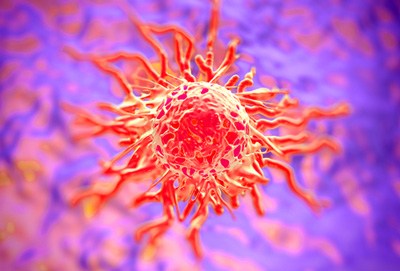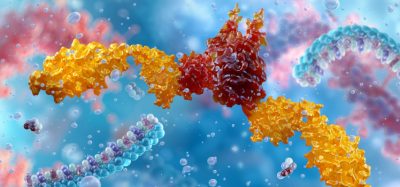Researchers make cancer immunotherapy ‘breakthrough’
Posted: 4 March 2016 | | No comments yet
Researchers have found the tools necessary to give immunotherapy the precision guidance that patients with cancer so desperately need…


Scientists have made a what is being called a ‘groundbreaking discovery’ in understanding how the genetic complexity of tumours can be recognised and exploited by the immune system, even when the disease is at its most advanced stages.
The findings, by researchers funded by Cancer Research UK and the Rosetrees Trust, could guide future immunotherapies and improve the way existing immunotherapy drugs are used.
As a tumour develops, the diversity of its genetic faults can be flagged on the cancer cell surface, as unique mutations appear in different parts of the tumour. Crucially, by analysing data from hundreds of patients from previous studies, researchers found that some of these antigens represent the very earliest mutations of the disease and are displayed on all cells in the tumour, rather than a subset of tumour cells. Then in the lab, the researchers isolated T-cells from samples of two patients with lung cancer that can recognise these common flags present on every tumour cell.
Although they have the potential to wipe out all cancerous cells within the tumour, these potent immune cells are switched off by the tumour’s defences.
Cancer Research UK says the research paves the way for therapies that specifically activate these T-cells to target all the tumour cells at once based on the disease’s genetic signature. In the future, scientists could exploit this by developing a therapeutic vaccine to activate T-cells, or harvesting, growing and administering T-cells back into the patient that recognise the antigens common to every cancer cell.


Dr Sergio Quezada, Cancer Research UK scientist and head of the Immune Regulation and Cancer Immunotherapy lab at UCL Cancer Institute, said: “The body’s immune system acts as the police trying to tackle cancer, the criminals. Genetically diverse tumours are like a gang of hoodlums involved in different crimes – from robbery to smuggling. And the immune system struggles to keep on top of the cancer – just as it’s difficult for police when there’s so much going on.
“Our research shows that instead of aimlessly chasing crimes in different neighbourhoods, we can give the police the information they need to get to the kingpin at the root of all organised crime – or the weak spot in a patient’s tumour – to wipe out the problem for good.”
Targeting antigens present in every cell
The genetic complexity of cancer, which is flagged by tumour antigens, arises when cancers evolve in a branched manner. The earliest faults are found in all cells, forming the ‘trunk’ of the disease, while later mutations arise in some cells but not all. It is these ‘branches’ that allow the disease to adapt and become drug resistant.
Professor Charles Swanton, from the UCL Cancer Institute and a Francis Crick Institute scientist, said: “This is exciting. There was evidence that complex tumours with many mutations could increase the chance of the immune system spotting them; now we can prioritise and target tumour antigens that are present in every cell, the Achilles heel of these highly complex cancers.
“This opens up a way to look at individual patients’ tumours and profile all the antigen variations to figure out the best ways for immunotherapy treatments to work, prioritising antigens present in every tumour cell and identifying the body’s immune T cells that recognise them. This is really fascinating, and takes personalised medicine to its absolute limit where each patient would have a unique, bespoke treatment.”
Swanton, Quezada and their teams are now working to turn this idea into something that could be applied to many more cancers, finding unique targets on all cancer cells and not the healthy cells.








